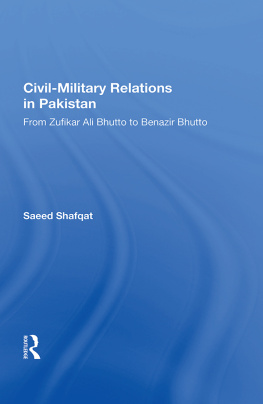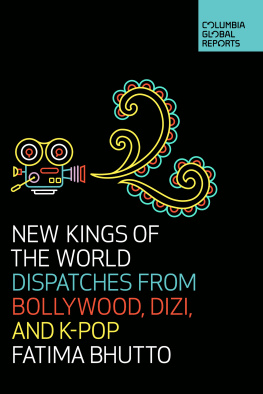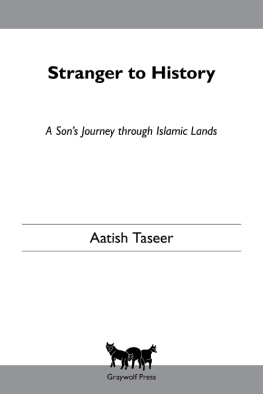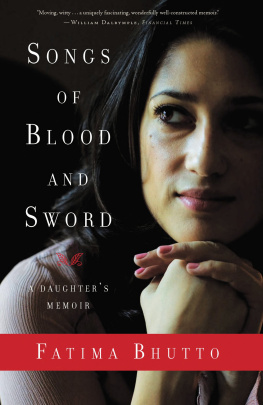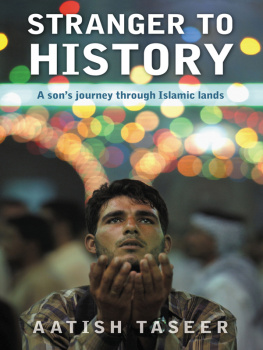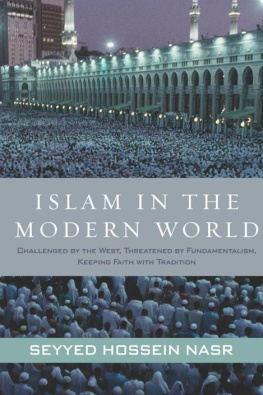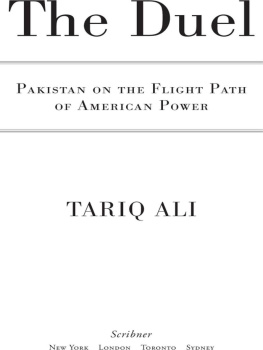T his book was written under extraordinary circumstances. It was my privilege to work with Benazir Bhutto on this project over the last very difficult months. This period of her life included her historic return to Karachi on October 18, 2007, which attracted three million supporters to greet her, and the unsuccessful assassination attempt on her in the early minutes of October 19 that killed 179 people. In the midst of all of this tumult Benazir and I collaborated on the book, at times while Benazir was under house arrest by the Musharraf regime and under the constraints of emergency rule, tantamount to martial law.
Despite the events swirling about her and her responsibility of leading Pakistans largest political partythe Pakistan Peoples Partyin the parliamentary election campaign, Benazir Bhutto remained focused on Reconciliation: Islam, Democracy, and the West. This book was very important to her, and she threw herself into it with the complete attention and intensity with which she did so many things in her life. Benazir was convinced that the battles between democracy and dictatorship, and between extremism and moderation, were the two central forces of the new millennium. She believed that the message of her cherished religion, Islam, was being politicized and exploited by extremists and fanatics. And she believed that under dictatorship, extremism festered and grew, threatening not only her homeland of Pakistan but also the entire world.
Thats why she wrote this book. Thats why it was so important to her. And thats why she devoted herself totally to this project, quite literally until the early morning of her death, when I received her final edits of the manuscript.
Although I helped Benazir research and write this book, it is her work from beginning to end: a positive statement of reconciliation among religions and nations; a bold assertion of the true nature of Islam; and a practical road map for bringing societies together.
Benazir Bhutto was the bravest person I have ever known and a dear, irreplaceable friend. She was assassinated on December 27, 2007, in Rawalpindi, Pakistan. I find some solace in knowing that the last memory of her will not be the bloody carnage of the murder scene, but rather the legacy of this book, which manifests the strength, optimism, and vision of a great woman.
MARK A. SIEGEL
Washington, D.C.
December 28, 2007
A s I stepped down onto the tarmac at Quaid-e-Azam International Airport in Karachi on October 18, 2007, I was overcome with emotion. Like most women in politics, I am especially sensitive to maintaining my composure, to never showing my feelings. A display of emotion by a woman in politics or government can be misconstrued as a manifestation of weakness, reinforcing stereotypes and caricatures. But as my foot touched the ground of my beloved Pakistan for the first time after eight lonely and difficult years of exile, I could not stop the tears from pouring from my eyes and I lifted my hands in reverence, in thanks, and in prayer. I stood on the soil of Pakistan in awe. I felt that a huge burden, a terrible weight, had been lifted from my shoulders. It was a sense of liberation. I was home at long last. I knew why. I knew what I had to do.
I had departed three hours earlier from my home in exile, Dubai. My husband, Asif, was to stay behind in Dubai with our two daughters, Bakhtawar and Aseefa. Asif and I had made a very calculated, difficult decision. We understood the dangers and the risks of my return, and we wanted to make sure that no matter what happened, our daughters and our son, Bilawal (at college at Oxford), would have a parent to take care of them. It was a discussion that few husbands and wives ever have to have, thankfully. But Asif and I had become accustomed to a life of sacrificing our personal happiness and any sense of normalcy and privacy. Long ago I had made my choice. The people of Pakistan have always come first. The people of Pakistan will always come first. My children understood it and not only accepted it but encouraged me. As we said good-bye, I turned to the group of assembled supporters and press and said what was in my heart: This is the beginning of a long journey for Pakistan back to democracy, and I hope my going back is a catalyst for change. We must believe that miracles can happen.
The stakes could not have been higher. Pakistan under military dictatorship had become the epicenter of an international terrorist movement that had two primary aims. First, the extremists aim to reconstitute the concept of the caliphate, a political state encompassing the great Ummah (Muslim community) populations of the world, uniting the Middle East, the Persian Gulf states, South Asia, Central Asia, East Asia, and parts of Africa. And second, the militants aim to provoke a clash of civilizations between the West and an interpretation of Islam that rejects pluralism and modernity. The goalthe great hope of the militantsis a collision, an explosion between the values of the West and what the extremists claim to be the values of Islam.
Within the Muslim world there has been and continues to be an internal rift, an often violent confrontation among sects, ideologies, and interpretations of the message of Islam. This destructive tension has set brother against brother, a deadly fratricide that has tortured intra-Islamic relations for 1,300 years. This sectarian conflict stifled the brilliance of the Muslim renaissance that took place during the Dark Ages of Europe, when the great universities, scientists, doctors, and artists were all Muslim. Today that intra-Muslim sectarian violence is most visibly manifest in a senseless, self-defeating sectarian civil war that is tearing modern Iraq apart at its fragile seams and exercising its brutality in other parts of the world, especially in parts of Pakistan.
And as the Muslim worldwhere sectarianism is rampantsimmers internally, extremists have manipulated Islamic dogma to justify and rationalize a so-called jihad against the West. The attacks on September 11, 2001, heralded the vanguard of the caliphate-inspired dream of bloody confrontation; the Crusades in reverse. And as images of the twin towers burning and then imploding were on every television set in the world, the attack was received in two disparate ways in the Muslim world. Much, if not most, of the Muslim world reacted with horror, embarrassment, and shame when it became clear that this greatest terrorist attack in history had been carried out by Muslims in the name of Allah and jihad. Yet there was also another reaction, a troubling and disquieting one: Some people danced in the streets of Palestine. Sweets were exchanged by others in Pakistan and Bangladesh. Condemnations were few in the worlds largest Muslim nation, Indonesia. The hijackers of September 11 seemed to touch a nerve of Muslim impotence. The burning and then collapsing towers represented, to some, resurgent Muslim power, a perverse Muslim payback for the domination of the West. To others it was a religious epiphany. And to still others it combined political, cultural, and religious assertiveness. A Pew comparative study of Muslims attitudes after the attacks found that people in many Muslim countries think it is good that Americans now know what it is like to be vulnerable.
One billion Muslims around the world seemed united in their outrage at the war in Iraq, damning the deaths of Muslims caused by U.S. military intervention without U.N. approval. But there has been little if any similar outrage against the sectarian civil war, which has led to far more casualties. Obviously (and embarrassingly), Muslim leaders, masses, and even intellectuals are quite comfortable criticizing outsiders for the harm inflicted on fellow Muslims, but there is deadly silence when they are confronted with Muslim-on-Muslim violence. That kind of criticism is not so politically convenient and certainly not politically correct. Even regarding Darfur, where there is an actual genocide being committed against a Muslim population, there has been a remarkable absence of protests, few objections, and no massive coverage on Arab or South Asian television.


